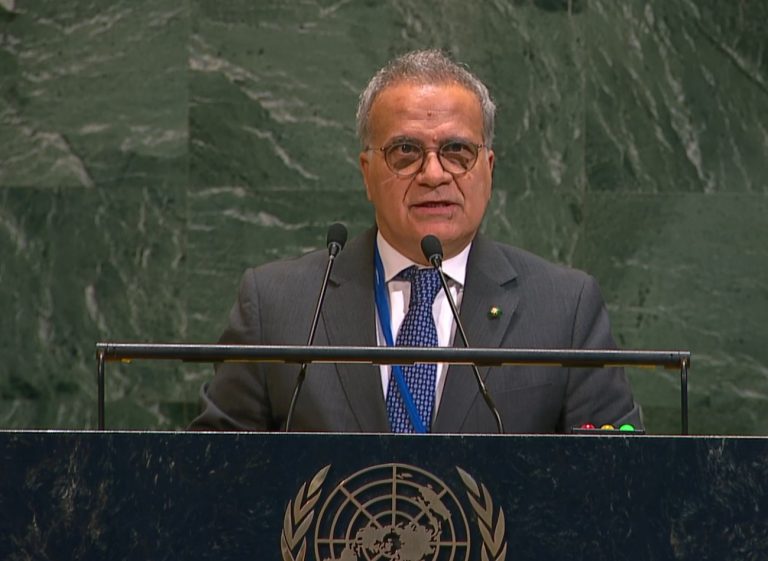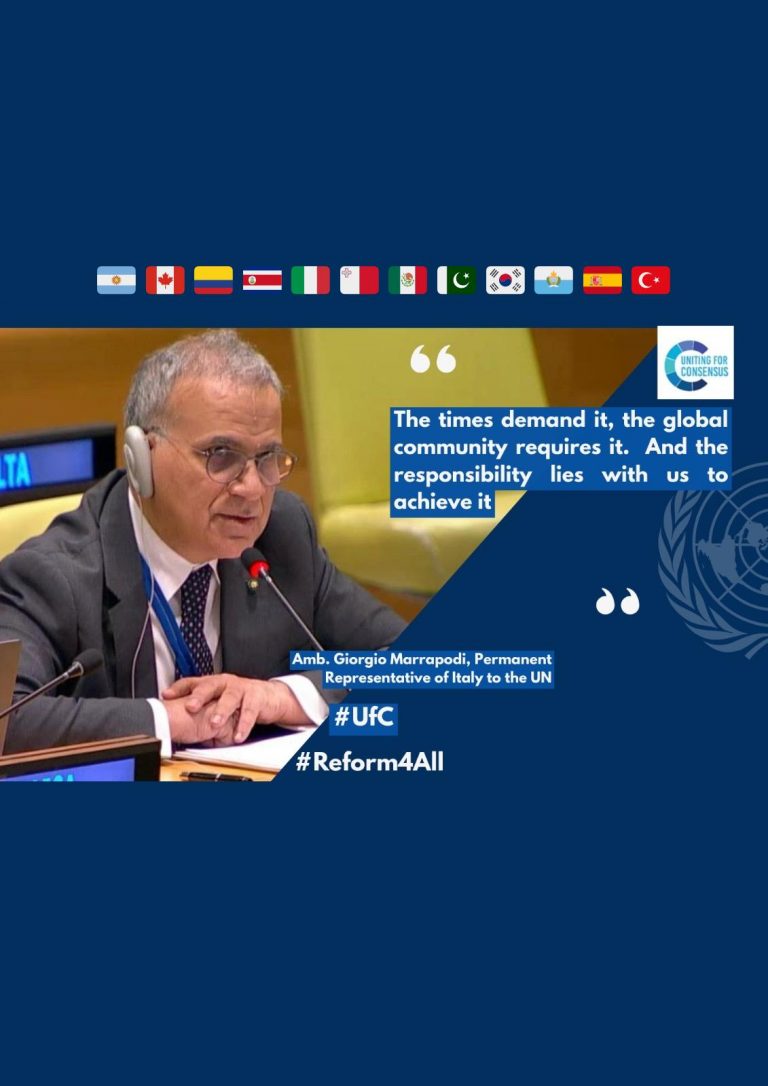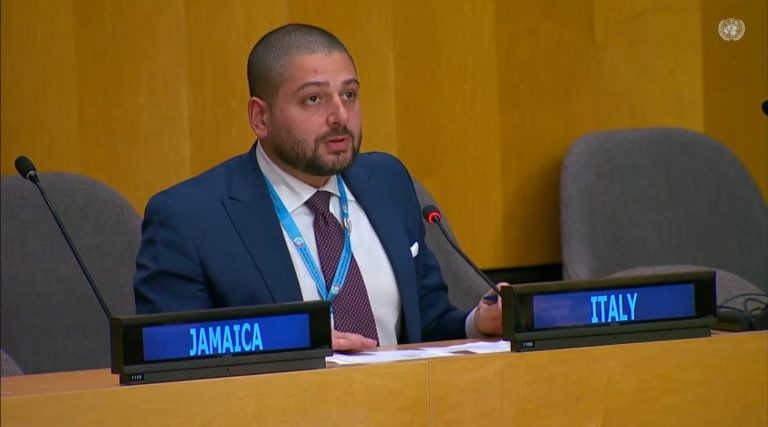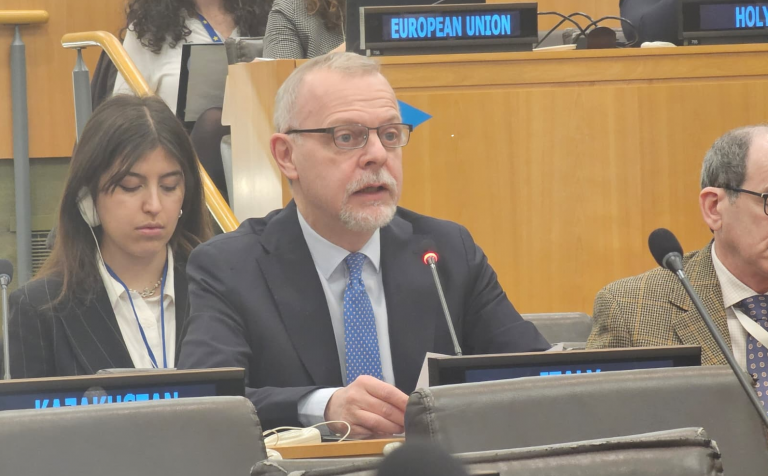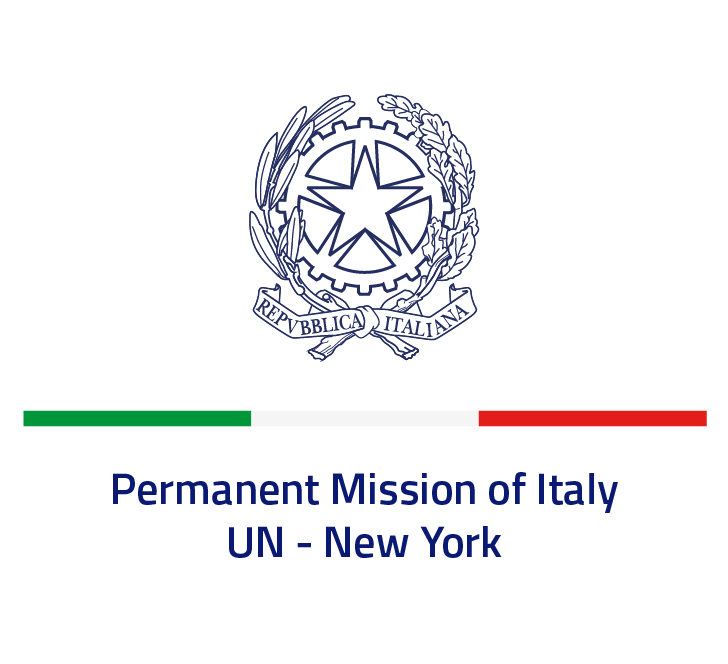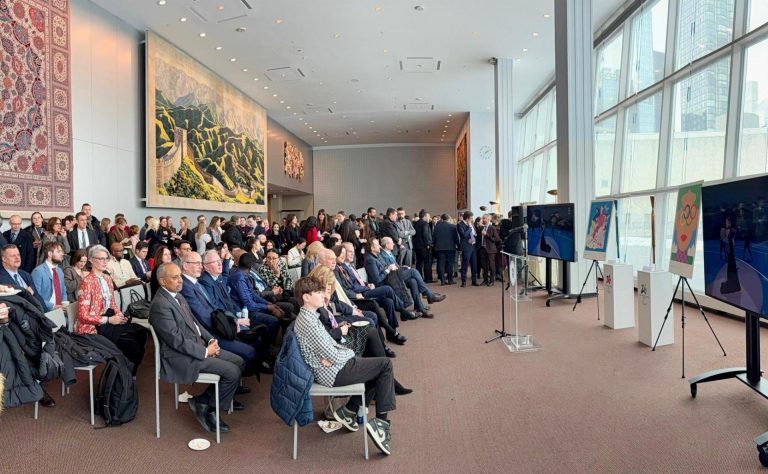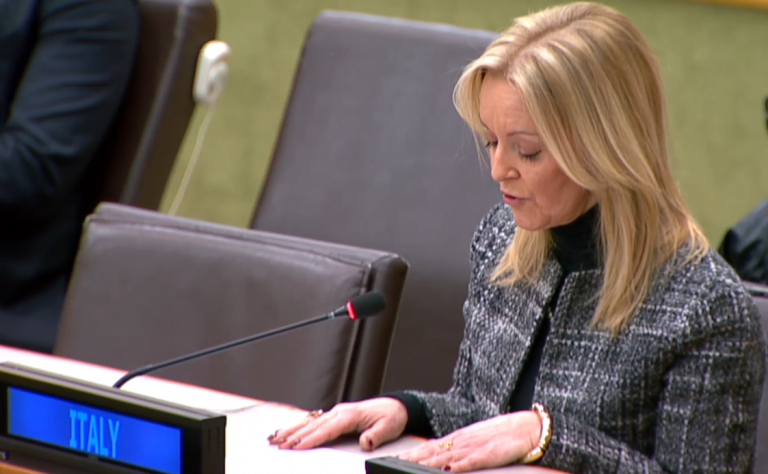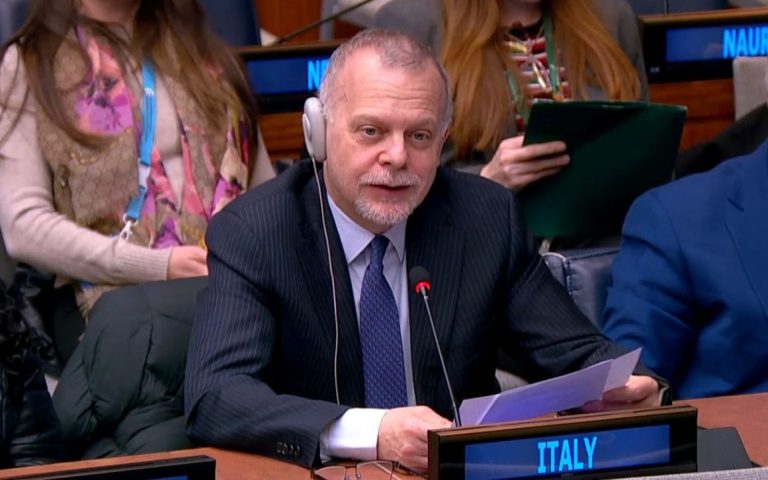Distinguished Co-Chairs,
I make this intervention on behalf of Uniting for Consensus (UfC), a pro-reform, cross-regional and diversified group that comprises Argentina, Canada, Colombia, Costa Rica, Malta, Mexico, Pakistan, Republic of Korea, San Marino, Spain, Türkiye and my own country, Italy.
I wish to thank you for convening this first meeting of the Intergovernmental Negotiations on Security Council reform for this 79th Session of the General Assembly, focusing on the following two of the five clusters of decision 62/557: Categories of Membership and Cross-regional representation.
On the issue of “categories of membership”, let me start by underlining that the General Assembly agreed to intensify efforts to find an agreement on this issue. UfC is committed to ensuring that reform efforts result in a Security Council that is truly representative, accountable, democratic, transparent, effective and responsive to current and future challenges. For this very reason, UfC does not support the creation of new permanent seats.
The current structure of the Council, with five permanent members wielding the veto, who are, in effect, enjoying a privileged status of being “more equal than others,” is a legacy of the past. As of 2024, the UN has 193 Member States, which is an increase of 80 Member States since 1963, when the first and last enlargement of the Council took place. Given the absolute necessity to provide all Member States the same chances, and I stress, the same chances to serve on the Council and increase the representation of underrepresented regions, being fully cognizant of the need to redress the historical injustice against Africa, UfC believes that it is high time to take a pragmatic approach and concentrate on reforming and expanding the non-permanent elected category.
We believe that this approach best aligns with the principles of democracy and effectiveness that all Member States support. Expanding the number of permanent members would deepen the divide between a small group of countries and the vast majority of Member States, and increase the lack of representativity and accountability of the Council. It would also further hinder the ability of the Security Council to act more effectively and swiftly to address global crises and challenges. Permanent membership is both anachronistic and counterproductive to the broader interests of the UN membership.
Why should a reformed Security Council only include expansion in the elected members when it comes to categories of membership?
The answer is simple. First, the United Nations is based on the principle of the sovereign equality of all states. Second, while some have proposed expanding the Council by adding more permanent members to supposedly better reflect the realities of the 21st century, what happens if the global landscape shifts again in 10, 20 or 40 years? If we are not able to remove the current permanent five, then only the inclusion of additional elected (non-permanent) members would be truly consistent with the principles of democracy and sovereign equality. This would ensure, through its composition, that decisions made by the Council are representative of the widest membership of the United Nations, therefore, enhancing its legitimacy and efficiency. Furthermore, expanding the Security Council only in the elected (non-permanent) members category, mainly from under-represented regions, would enhance regional representation and promote a more balanced rotation among all UN Member States. We can elaborate on this further during the interactive session, but in short, the UfC proposal ensures that every Member State has greater opportunity to participate on the Council. As per the enhanced accountability of the reformed Security Council, with fixed-term mandates and the requirement to seek re-election from the broader UN membership, elected members would be more inclined to prioritize the collective interests of the international community over their national interests.
For those Member States that have resources and willingness to assume a more prominent role in the Council’s work and are capable of fulfilling longer terms, as a compromise solution, the UfC has proposed the introduction of longer-term re-electable non-permanent seats, with terms ranging from 3 to 5 years to provide continuity while maintaining a fair system of rotation and election. Let me clarify that these long-term seats remain within the non-permanent category, although with a different temporality, subject to elections on the basis of criteria stated in art. 23.1 of the UN Charter. Long-term seats as proposed by UfC would offer the opportunity for a sustained presence and involvement in the Council’s activities. We view this as a practical and achievable proposal that respects the varying interests and aspirations of all Member States. These seats would, in fact, not be reserved to a specific group of Member States but would be accessible to all. Of course, details will need to be discussed and agreed by the membership. We remain open to negotiating the specific modalities of longer-term re-electable non-permanent membership, such as exact length of the term, conditions for re-election and maximum duration of service, to ensure democracy, fairness, equitable representation and effective functioning of the Council.
Distinguished Co-Chairs,
On “cross-regional representation”, UfC remains open to the idea of exploring special arrangements for cross-regional groups to improve representation while preserving the Council’s efficiency. These arrangements should be pragmatic and responsive and could involve adjustments within or between existing regional groups, with careful attention paid to balancing representativeness and operational effectiveness. We are open to further refining our proposal to better address these issues.
Our model aims to ensure better representation for regional, sub-regional, and interregional/cross-regional actors in the reformed Security Council, recognizing the vital role these play. In this regard, the UfC’s proposal includes a rotating seat especially dedicated to Small Island Developing States (SIDS) and Small States, which is one way to enhance their representation. We have taken note that this rotating seat for SIDS was recently taken on board by a broader grouping of Member States, which is proof of the forging of convergences within the IGN. We also note that the current Council structure partially reflects cross-regional arrangements, such as the ongoing presence of members of the Arab Group.
The General Assembly recently agreed to continue discussions on the issue of representation of cross-regional groups, taking into account that Small Island Developing States, Arab States and others, such as the Organization of Islamic Cooperation (OIC), have called for more adequate representation. This warrants serious consideration within the IGN discussions and we welcome pragmatic deliberations on this matter. Under our proposal, it would be for the regions themselves to determine the modalities for fair rotation of these seats, respecting the principle of regional ownership and recognizing the particularities of the regions.
As a matter of transparency and fairness for the whole membership, when considering representation of cross-regional groups, we need to carefully analyze and hold further discussions on how to avoid multiplication of candidacies in the case that some Member States could be considered as part of several groups at the same time.
Allow me now to further explain our proposal for a reserved seat for SIDS and Small States. These countries face unique and often existential challenges that are both specific to their circumstances and global in scope, with implications for broader international security. SIDS and Small States also often struggle to mount successful campaigns for Security Council seats to compete with other States in their regional groups, and we believe their voices must be heard and ensured in the Council. Therefore, we have proposed an ad hoc seat dedicated to this particular group to ensure their stable and ongoing representation in the Council.
UfC also supports increasing substantially the African representation on the Council by allocating 6 non-permanent seats for the region. This would double African representation on the Council and result in Africa being the regional group with the most elected seats. It would also allow all 54 countries of the Africa Group more opportunities to serve on the Council. We will continue to advocate for redressing Africa’s historic exclusion from the Council, and secure due and substantial representation for African countries.
In general, UfC’s belief is that by increasing the number of elected seats, as proposed by the UfC model, cross-regional groupings would be easier to accommodate and would function more effectively within the Council.
Distinguished Co-Chairs,
I thank you for this opportunity to continue expanding on the UfC’s main position on the crucial issues on the table today. We are eager to hear other negotiating groups and Member States’ ideas and to discuss further the topics at hand. We also look forward to further discussing the rest of the clusters in this framework of the IGN, which, as we have also agreed to once again, continues to be do only forum for the reform of the Security Council.
All UfC partners will continue to engage in the earnest attempt to find convergences with a spirit of flexibility to ultimately reach a comprehensive reform that will benefit all, not just a few.
I thank you.








